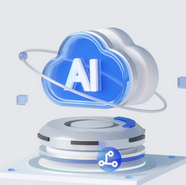人工智能英文翻译软件
人工智能
2023-12-06 06:00
472
联系人:
联系方式:
阅读提示:本文共计约3453个文字,预计阅读时间需要大约9分钟,由本站编辑整理创作于2023年11月05日03时47分13秒。
Title: AI-Powered Traditional Chinese Medicine Translation: Bridging the Gap Between Eastern and Western Healthcare
Introduction
Traditional Chinese Medicine (TCM) has been practiced for thousands of years, providing a holistic approach to healthcare that focuses on balancing the body's vital energy, or Qi. Despite its long history and proven effectiveness, TCM remains relatively unknown in many parts of the world, especially in Western countries. One significant barrier to the global acceptance of TCM is the lack of accurate and reliable translations, making it difficult for non-Chinese speakers to fully understand and benefit from this ancient wisdom. Fortunately, recent advancements in artificial intelligence (AI) have made it possible to bridge this linguistic divide and bring the healing power of TCM to a wider audience.
AI-Powered TCM Translation: A Game-Changer
AI technology has shown great potential in various fields, including language translation. By utilizing neural networks and deep learning algorithms, AI systems can now accurately translate complex texts, including those related to TCM. This breakthrough has enabled the rapid and seamless translation of TCM terminology, making it easier for English speakers to access and comprehend the rich knowledge of TCM.
One example of an AI-powered TCM translation tool is the "TCM Dictionary," which provides real-time translations of TCM terms and concepts. This innovative resource not only facilitates communication between TCM practitioners and patients but also promotes cross-cultural understanding and collaboration in the field of healthcare.
Enhancing Patient Care Through AI-Powered TCM Translation
Accurate and accessible TCM translations have the potential to revolutionize patient care by allowing more people to benefit from the healing properties of TCM. For instance, AI-powered TCM translation tools can help doctors and nurses better communicate with their non-Chinese speaking patients, leading to improved diagnosis and treatment plans. Additionally, these tools can assist researchers in conducting studies on the efficacy of TCM therapies, ultimately contributing to the global advancement of healthcare.
Challenges and Future Directions
Despite the promising potential of AI-powered TCM translation, there are still several challenges to overcome. One of the most significant concerns is the need for high-quality training data, as AI systems rely on vast amounts of data to learn and improve their performance. To address this issue, researchers and developers must continue to invest in the collection and curation of TCM-related data, ensuring its accuracy and relevance.
Furthermore, as AI technology continues to evolve, it is essential to explore new ways of integrating AI-powered TCM translation into various aspects of healthcare, such as telemedicine and personalized medicine. By doing so, we can ensure that the benefits of TCM are accessible to everyone, regardless of their linguistic background.
In conclusion, AI-powered TCM translation has the potential to bridge the gap between Eastern and Western healthcare, allowing more people to benefit from the ancient wisdom of TCM. By overcoming current challenges and continuing to innovate in this field, we can pave the way for a future where traditional Chinese medicine is accessible and understood by all.
本站涵盖的内容、图片、视频等数据系网络收集,部分未能与原作者取得联系。若涉及版权问题,请联系我们进行删除!谢谢大家!
阅读提示:本文共计约3453个文字,预计阅读时间需要大约9分钟,由本站编辑整理创作于2023年11月05日03时47分13秒。
Title: AI-Powered Traditional Chinese Medicine Translation: Bridging the Gap Between Eastern and Western Healthcare
Introduction
Traditional Chinese Medicine (TCM) has been practiced for thousands of years, providing a holistic approach to healthcare that focuses on balancing the body's vital energy, or Qi. Despite its long history and proven effectiveness, TCM remains relatively unknown in many parts of the world, especially in Western countries. One significant barrier to the global acceptance of TCM is the lack of accurate and reliable translations, making it difficult for non-Chinese speakers to fully understand and benefit from this ancient wisdom. Fortunately, recent advancements in artificial intelligence (AI) have made it possible to bridge this linguistic divide and bring the healing power of TCM to a wider audience.
AI-Powered TCM Translation: A Game-Changer
AI technology has shown great potential in various fields, including language translation. By utilizing neural networks and deep learning algorithms, AI systems can now accurately translate complex texts, including those related to TCM. This breakthrough has enabled the rapid and seamless translation of TCM terminology, making it easier for English speakers to access and comprehend the rich knowledge of TCM.
One example of an AI-powered TCM translation tool is the "TCM Dictionary," which provides real-time translations of TCM terms and concepts. This innovative resource not only facilitates communication between TCM practitioners and patients but also promotes cross-cultural understanding and collaboration in the field of healthcare.
Enhancing Patient Care Through AI-Powered TCM Translation
Accurate and accessible TCM translations have the potential to revolutionize patient care by allowing more people to benefit from the healing properties of TCM. For instance, AI-powered TCM translation tools can help doctors and nurses better communicate with their non-Chinese speaking patients, leading to improved diagnosis and treatment plans. Additionally, these tools can assist researchers in conducting studies on the efficacy of TCM therapies, ultimately contributing to the global advancement of healthcare.
Challenges and Future Directions
Despite the promising potential of AI-powered TCM translation, there are still several challenges to overcome. One of the most significant concerns is the need for high-quality training data, as AI systems rely on vast amounts of data to learn and improve their performance. To address this issue, researchers and developers must continue to invest in the collection and curation of TCM-related data, ensuring its accuracy and relevance.
Furthermore, as AI technology continues to evolve, it is essential to explore new ways of integrating AI-powered TCM translation into various aspects of healthcare, such as telemedicine and personalized medicine. By doing so, we can ensure that the benefits of TCM are accessible to everyone, regardless of their linguistic background.
In conclusion, AI-powered TCM translation has the potential to bridge the gap between Eastern and Western healthcare, allowing more people to benefit from the ancient wisdom of TCM. By overcoming current challenges and continuing to innovate in this field, we can pave the way for a future where traditional Chinese medicine is accessible and understood by all.
本站涵盖的内容、图片、视频等数据系网络收集,部分未能与原作者取得联系。若涉及版权问题,请联系我们进行删除!谢谢大家!


